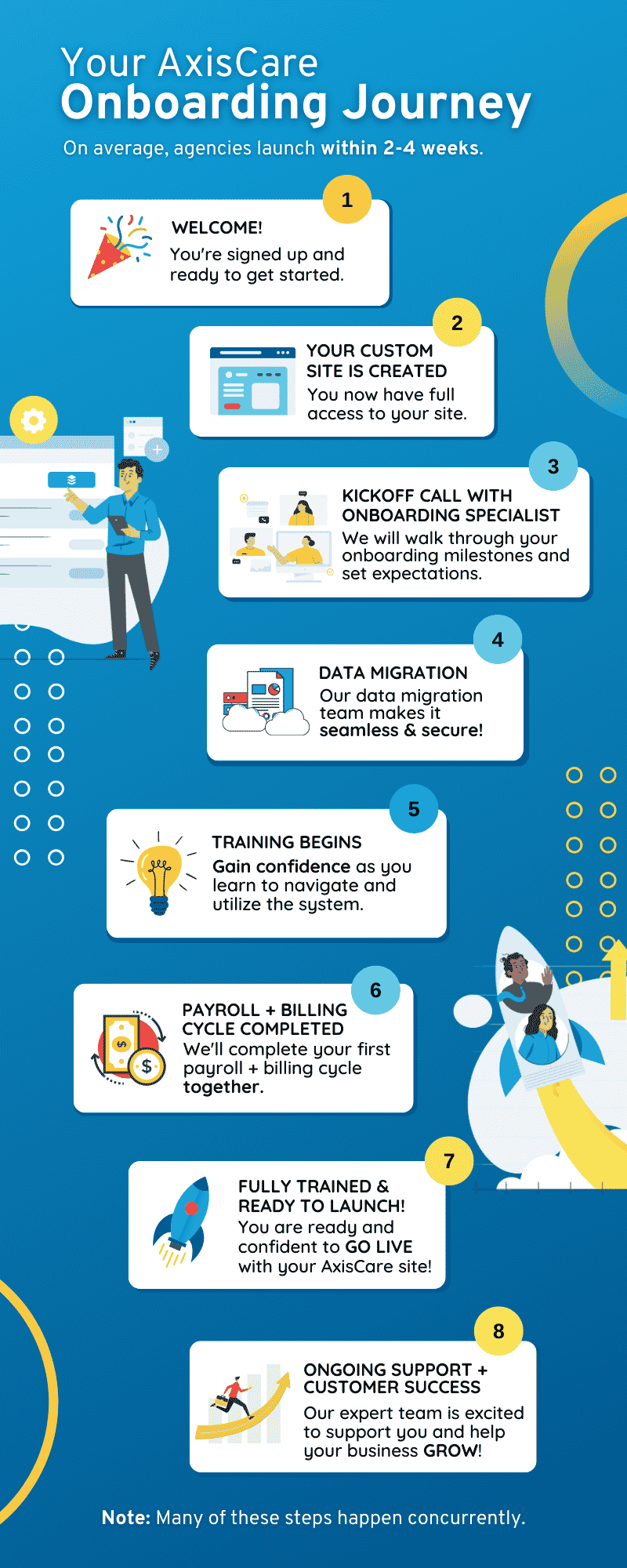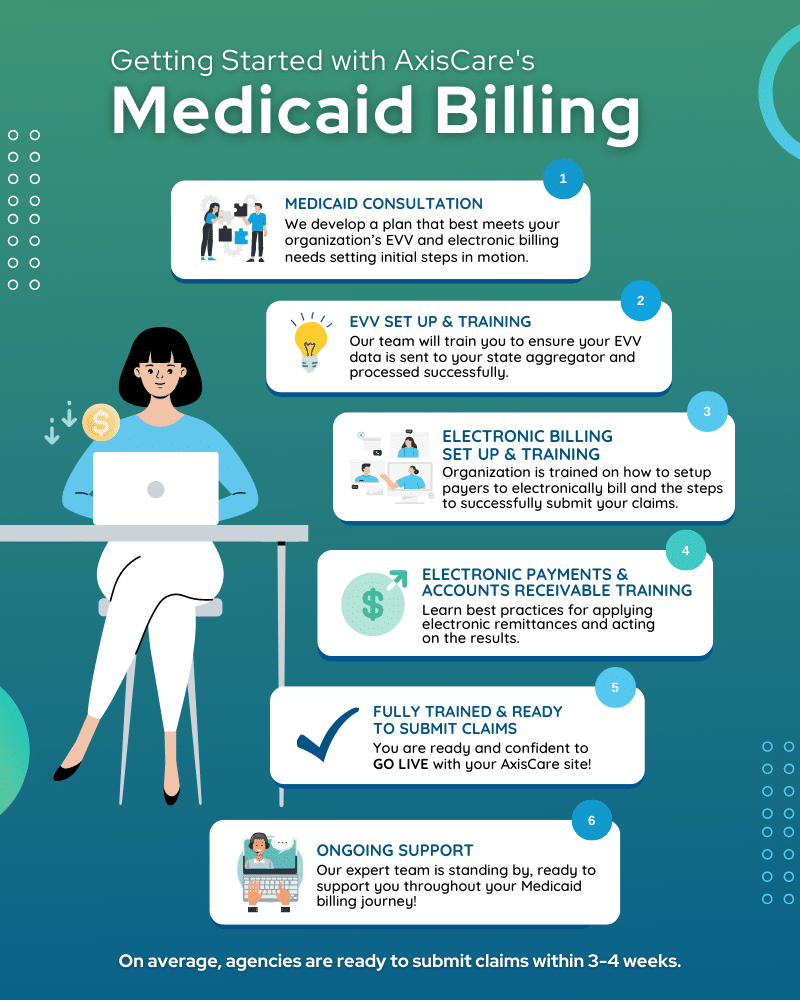The Role of Compliance in IDD Services
Every IDD agency is required to follow compliance laws set forth by state and federal agencies. These regulations exist for two reasons: first, they ensure that people with IDD are receiving safe, effective, and person-centered support services. Second, they provide frameworks to help agencies maintain accurate documentation, deliver practical staff training, protect client rights, and adhere to health and safety protocols.
Compliance is also critical for meeting legal obligations and securing funding for various programs. In this piece, we’ll cover how IDD agencies can stay on the right side of the law and how compliance can be a gateway for supporting individuals’ independence, dignity, and inclusion.
Understanding IDD Compliance Requirements
IDD compliance is based on a mosaic of different rules. At the top of the pyramid, government regulators like the Centers for Medicare and Medicaid Services (CMS) and state-level disability service departments set standards that ensure services are delivered ethically and in line with funding requirements.
Individualized Service Planning (ISP) is another piece that entails creating a custom support plan for each individual. The plan must outline goals and recommended services to promote independent living and inclusion: it’s a cornerstone of person-centered care that prevents agencies from applying a broad, one-size-fits-all solution.
IDD agencies must adhere to training requirements and experience benchmarks to ensure they’re competent and can provide safe, high-quality services. Sending under-qualified staff out into the field can jeopardize the health and safety of individuals receiving support, and failing to equip employees with the tools they need to succeed can lead to disillusionment and turnover.
Documentation is another key pillar of IDD compliance. Agencies are responsible for maintaining accurate, timely notes detailing the services delivered during every appointment and progress made over time. Well-kept records also support billing compliance: they provide complete and accurate records that can be used to enter the right service codes and prove that individuals are receiving the support outlined in their plans.
The Importance of Documentation for IDD Compliance
Thorough documentation is required when an individual begins their IDD assessment process. It begins with eligibility testing, when a physician or psychologist submits a detailed overview of the individual’s personal and medical history.
Once they are deemed eligible for an IDD support program, their physician will create an individualized service plan (ISP). This document will take on many iterations as the person’s needs and life circumstances evolve. With each completed visit, support staff must submit progress notes, track behavioral elements, and create incident reports whenever necessary.
Regulatory bodies rely on complete and accurate documentation to verify that an agency is delivering services that meet their standards. Proper documentation also validates billing claims and confirms that the services match the individual’s ISP, ensuring uninterrupted funding from payers like Medicaid.
Common Challenges in Achieving IDD Compliance
IDD compliance standards are in a constant state of flux. An ironclad rule today might be totally different by the same time next year, and agencies must actively keep tabs on industry developments to ensure they don’t fall out of step.
Complex care coordination adds another layer of difficulty, as individuals often receive services from multiple providers with their own reporting requirements and timelines. Standardizing documentation across providers increases the administrative burden and leaves more room for errors that can affect audits, funding, and the quality of care.
Navigating Varying Regulatory Environments
IDD compliance rules can vary significantly across different states and regions, which creates operational strain for multi-location agencies or those scaling their services. Keeping processes consistent against a backdrop of changing regulations is an ongoing struggle, and one that requires a robust toolkit to make it work.
Addressing Staff Turnover & Retention
Within the first 100 days of joining an agency, 80% of professional caregivers leave their new role. So, even if nothing has changed on the compliance side, agencies must constantly deliver training as new cohorts are hired. This leaves teams and resources stretched thin, potentially creating gaps that allow documentation or service deliveries to slip through the cracks.
To combat this chronic loss of procedural knowledge, agencies must maintain a strong focus on retention. Beyond competitive wages, employees appreciate extras like performance incentives that reward hard work and plenty of communication that allows them to provide feedback.
Strategies for Overcoming IDD Compliance Challenges
Focusing on prevention rather than correction is the best way to avoid common compliance pitfalls. Digital record-keeping platforms have automatic safeguards against errors and omissions, such as templated forms, flagging alerts, and automatic reminders for documentation updates.
Creating a central place to store assessments, care plans, and progress notes also helps enable continuity. It reduces the likelihood of duplicate entries and human error. If everyone can access the same documents in the same place, they can act as a “single source of truth.”
As mentioned earlier, staff training and development are equally important to stay on top of regulatory requirements and documentation standards. From the top down, fostering a culture of compliance that champions accountability, open communication, and proactive problem-solving ensures potential issues are identified and addressed quickly, rather than reacting to a noncompliance incident.
Implementing Technology Solutions
Digital tools and features like electronic health records (EHRs), training platforms, and compliance dashboards give IDD agencies real-time visibility into their performance from both a regulatory and operational standpoint. These systems reduce administrative burden by automating processes, centralizing information, and detecting errors on the spot.
A strong IDD software will help reinforce operational excellence by creating clear audit trails, presenting performance metrics in an easy-to-understand way, and setting compliance checkpoints that keep staff and leadership aligned with regulatory standards.
Investing in Staff Development
Comprehensive training requires more than a monthly all-hands meeting or access to a resource portal. Agencies that go above and beyond the minimum training requirements will ultimately win.
For example, offering ongoing learning opportunities and encouraging employees to obtain relevant certifications is a long-term investment in care quality and compliance success. Not only will agencies end up with a highly qualified team, but they will likely also improve their retention by providing opportunities to learn and grow on the job.
Building a Culture of Compliance
Motivation and accountability trickle down from the very top. Within IDD agencies, leadership members must set the tone by modeling best practices for compliance and creating space to discuss industry updates through regular team check-ins. These checkpoints can also serve as an opportunity to clarify expectations and collaboratively work through challenges before they escalate, reinforcing that compliance is a shared responsibility.
Appointing compliance champions within departments can further strengthen this culture; staff may be more comfortable approaching one of their peers if they have questions or need help. Without these on-the-ground champions, some issues may not see the light of day if employees don’t deem them important enough to “bother” a senior-level team member.
Stay Ahead of IDD Compliance With AxisCare
If compliance is a team sport, AxisCare is the ultimate MVP. Our software is designed to keep IDD agencies above board and on top of ever-changing compliance regulations, whether they operate in a single state or across the country. Request a free live demo to learn more about how we can help automate key processes, improve documentation accuracy, and support teams with real-time tools.









